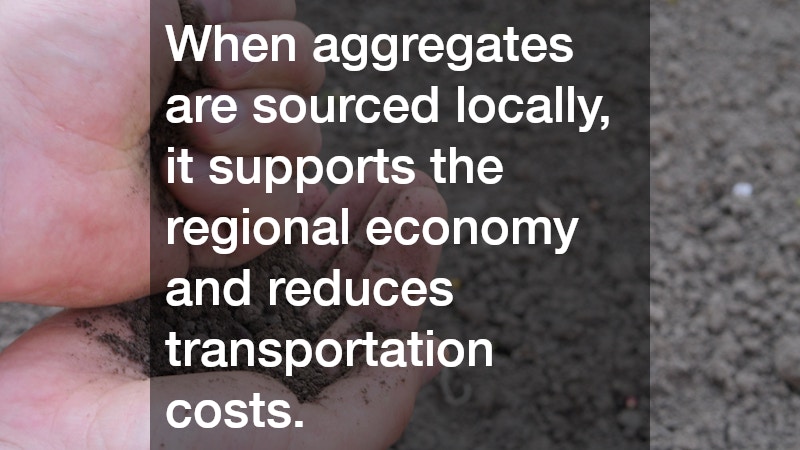

When you buy aggregates in Austin, TX, for various construction projects, it demands careful consideration of several important factors. Knowing what to look for ensures you get the best quality materials for your project needs. This guide helps you understand the essentials when buying aggregates in this region.
How Does the Source of Aggregates Impact Quality?
The origin of aggregates plays a vital role in determining their quality. Aggregates sourced from reputable quarries in Austin tend to be more reliable and consistent in their composition. This consistency is crucial for the structural integrity of construction projects, as even small variances in material composition can have significant consequences. Moreover, local sourcing often means that the aggregates are well-suited to the regional climate and environmental conditions, enhancing their performance over time.
When aggregates are sourced locally, it supports the regional economy and reduces transportation costs. The shorter the distance the materials must travel, the less the environmental impact due to reduced carbon emissions. Additionally, by using local materials, you are more likely to find aggregates that blend naturally with the Austin landscape, preserving the aesthetic and geological harmony of the area. Consistent contact and communication with local suppliers can also lead to long-term partnerships that ensure a steady supply of high-quality materials.
Quality control at the source can vastly affect the outcome of the construction project. Suppliers with strong quality assurance processes ensure that the materials meet necessary standards and regulatory requirements. It is advisable to choose suppliers who frequently test their materials and provide documentation to verify compliance with industry standards. In Austin, where construction varies from residential buildings to infrastructure projects, having aggregates that meet specific performance criteria is essential for project success and sustainability.
What Are the Different Types of Aggregates Available in Austin?
Austin offers a wide variety of aggregates, each suited to specific applications within construction. Common options include gravel, limestone, granite, and recycled concrete. Gravel is often used in road construction and as a base before laying asphalt, due to its excellent drainage properties. Limestone is a popular choice for building foundations and walls because of its strength and durability. Meanwhile, granite is favored for decorative purposes and in high-traffic areas due to its resilience and aesthetic appeal.
Recycled aggregates are becoming increasingly popular in Austin as sustainable construction practices gain traction. These materials are made from crushed demolition waste, providing an eco-friendly alternative to traditional aggregates. Using recycled aggregates reduces the need to extract virgin materials and decreases landfill waste, contributing to a more sustainable construction industry. Additionally, they can offer cost savings while maintaining quality standards required for various construction projects.
Each type of aggregate has distinct properties that must be considered in relation to the specific requirements of a project. For instance, the porosity and thermal properties of limestone make it ideal for projects that demand both strength and insulation. Conversely, the angularity of crushed granite is beneficial where additional grip or traction is required, such as in pathways or driveways. Selecting the right type of aggregate is a critical decision that impacts not only the functionality of the construction project but also its longevity and aesthetic coherence.
How Can You Ensure Competitive Pricing for Aggregates?
Securing competitive pricing for aggregates in Austin requires strategic planning and market awareness. One effective approach is to solicit quotes from multiple suppliers to compare costs and assess which provider offers the best value for the quality needed. Suppliers may offer different prices based on factors like material type, quantity, and delivery distance. Being clear about your project’s requirements and exploring various options can reveal opportunities for savings without compromising quality.
Negotiation plays a key role in obtaining favorable pricing. Building a relationship with local suppliers can lead to bulk discounts or priority service, especially important for large or ongoing projects. Communicate openly about your budget constraints and ask about any potential for adjusting the price. Many suppliers are willing to offer competitive rates to secure long-term clients, especially in a city with as much growth and construction as Austin.
Monitoring market trends is another essential step in ensuring cost-effectiveness. Prices for aggregates can fluctuate due to changes in demand, fuel prices, and other economic factors. By staying informed about these trends, you can time your purchases to coincide with lower market rates. Establishing a good rapport with suppliers can also provide you access to insights about when prices might be expected to rise or fall, allowing you to plan your purchases more strategically and cost-effectively.
Conclusion
Making informed decisions when go to buy aggregates in Austin, TX, is crucial for the success and durability of construction projects. By considering the source, type, and pricing of aggregates, you can ensure that your investment leads to optimal construction results. Whether you’re a homeowner embarking on a personal project or a contractor managing large-scale developments, understanding these factors will guide you in procuring the right materials that meet both your performance standards and budget constraints.


